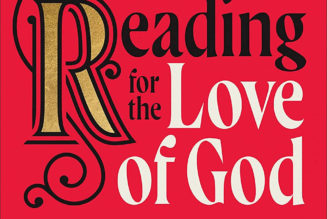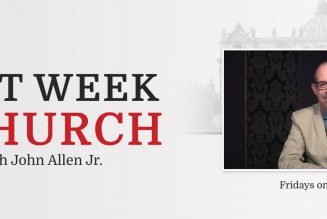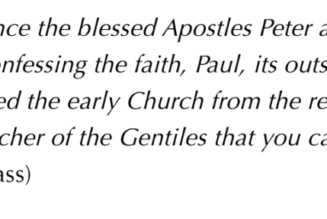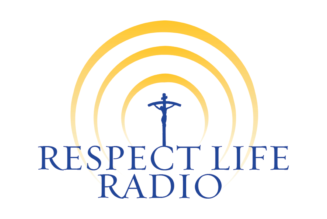
Which school is the best school for your child?
Over the past 20 years, I have visited more than 460 schools: urban, suburban, and rural; public, private, and parochial; serving affluent, middle-income, and low-income communities. I have led workshops for teachers and spoken to parents. I have learned that middle-income and affluent parents tend to define “the best school” as “the school most likely to get my child into Princeton, Stanford, MIT, or another top-rated university.” When considering a school, even a kindergarten or pre-K, the first question these parents are likely to ask is “Where do these kids go after they graduate?”
We now have long-term longitudinal cohort studies in which researchers have followed students for up to 50 years after graduation, studying the effect that different school types have on different outcomes. We also have extensive research on the effects that different schools have on parameters such as anxiety and depression.
The results are surprising.
Forty years ago, when I was earning my Ph.D. in psychology at the University of Pennsylvania, the research seemed clear. Studies back then showed that kids who attended schools in low-income communities were at higher risk for substance abuse, anxiety, and depression, compared with kids who attended schools in more affluent communities. Suniya Luthar, then at Columbia University, was among the first to document a change. Beginning in the late 1990s, she found that the previous association had flipped. In a seminal study published in 1999, Luthar and her Yale colleague Karen D’Avanzo documented that affluent kids were now at higher risk for substance abuse, and scored higher on measures of anxiety and depression, compared with low-income kids. Multiple subsequent studies, including several authored by Luthar, replicated and extended this finding. In 2009, researchers at New York University coined the term “affluenza” to describe this new phenomenon: upper-middle-income and affluent kids now at greater risk for psychiatric disorders and substance abuse compared to their low-income peers.
More recent research, however, has led to a significant revision in our understanding of what’s going on. In 2018, Luthar and her colleague Nina Kumar published new research showing that the risk associated with affluence derives not from household income per se, but from the school. They found that schools that prioritize getting into top universities, schools that place a premium on superior academic and extracurricular performance—so-called “high-achieving schools”—are now associated with increased risk of anxiety, depression, and substance abuse. The risk associated with these schools is separable from household income. Low-income kids who attend high-achieving schools are at increased risk, similar to their affluent peers. Affluent kids who attend schools that are not considered high-achieving are not at risk. The toxicity apparently comes from the school, not the income bracket.
On the surface, the research seems to suggest that maybe we should not send our kids to a high-achieving school, a school that encourages superior academic and extracurricular performance. But that doesn’t sound right. Aren’t we supposed to encourage kids to strive for excellence?
Maybe we need to change the way we think about what school is for. Maybe school shouldn’t be primarily about getting into an elite university. Maybe it should be about fulfilling your potential and being connected to family and community.
In a recent review of the research—bluntly titled “High-Achieving Schools Connote Risks for Adolescents”—Luthar and her colleagues summarize the findings: kids attending high-achieving schools are indeed much more likely to become anxious and/or depressed compared to kids who don’t attend such schools. Luthar and coworkers try to understand what elements of a high-achieving school are responsible for the toxicity. They highlight social comparison. These schools, intentionally or not, typically foster a competitive environment in which kids are constantly comparing themselves with one another. Who won the award? Who was accepted at which university? And instead of parents shielding their kids from the stress of comparison, “both generations buy into the pursuit of doing ever more to achieve.” When a child or teen’s sense of self-worth depends on the magnificence of their accomplishments, that kid becomes fragile.
When I share this research with parents, some parents respond, “Well, that’s the price of success. You have to be tough to succeed. I’m willing to accept the risk of some stress in the short term if it increases the odds of my child’s success in the long term.”
Those parents are assuming that attending a high-achieving school predicts better outcomes later in life: more wealth, better health, and happiness. But the research contradicts that assumption. It is true that affluent kids are more likely to become affluent adults, compared to low-income kids. But after controlling for household income, attending a high-achieving school does not increase the long-term odds of success. On the contrary, when researchers tracked down students 11 years and then 50 years after high school graduation, they found that attending a high-achieving high school was associated with lower educational and occupational achievement, compared to students with the same household income who attended schools with average achievement profiles. Citing this research, Luthar and colleagues conclude that “continual social comparisons with mostly high-achieving peers may explain the long-term negative effects of participation in the high-achieving school race-to-the-top.”
If getting good marks at a high-achieving school does not predict good outcomes long term, what does? I devoted two chapters of my book The Collapse of Parenting to reviewing every long-term longitudinal cohort study that bears on this question. The answer is consistent. Character and Conscientiousness—meaning honesty and self-control—predict health, wealth, and happiness long-term. Boys who are rated as helpful by their kindergarten teacher earn more money 30 years later compared to boys rated less helpful. Children who exhibited better self-control at age 11 were much more likely to be healthy and doing well financially when investigators tracked them down 21 years later, at age 32. Young people who are more conscientious are less likely to be divorced 30 years later; conversely, young people who are less conscientious are more likely to die prematurely. Getting good marks at a high-achieving school does not predict health or happiness, long-term; but being conscientious and helpful predicts both.
It follows from this research that if we want our child to be healthy, well-off, and happy as an adult, our top priority as parents should not be to enroll our child in a high-achieving school; instead, our first priority should be to teach our child to be helpful, honest, and self-controlled.
How to do that, exactly?
If we want our child to be healthy, well-off, and happy as an adult, our top priority as parents should not be to enroll our child in a high-achieving school; instead, our first priority should be to teach our child to be helpful, honest, and self-controlled.
Luthar and coworkers recommend explicitly prioritizing character and conscientiousness over performance. Tell your child “I would rather you get a ‘C’ on the test honestly than cheat and get an ‘A.’” Luthar and colleagues also recommend that parents should “watch for their children becoming overextended and exhausted and help them to reduce commitments if necessary.” Many middle-income and affluent kids are immersed in a toxic culture that pushes them to perform. Parents may have to intervene, to limit activities and commitments, to ensure that kids are not overextended.
Schedule time off to do fun things with your kid. And time off should be time OFF, not another kind of performance. Dance, sports, and the arts should be leisure activities, not additional opportunities to wow the audience or burnish the resumé.
Limit children’s use of social media, which—according to one national survey of 9- to 15-year-olds—is first and foremost about social comparison. Recall that social comparison is the mechanism by which Luthar and colleagues believe that high-achieving schools work their mischief.
I want you to know that I have skin in this game. For nine years, beginning in pre-K, my daughter attended a highly-selective, high-achieving private school in an affluent suburb. This school boasts many graduates who go on to Princeton, Stanford, etc. Although my daughter was doing well academically, my wife and I made the decision in 2019 to move her to a less competitive school, one with an explicitly Christian (Protestant) focus. Our daughter is beginning her second year at the new school, and all of us—myself, my wife, and my daughter—agree that it has been a change for the better. Less stress. Less drama. More focus on who you are—are you kind? are you a good friend?—rather than on what you do or on how amazing your achievements are.
Maybe we need to change the way we think about what school is for. Maybe school shouldn’t be primarily about getting into an elite university. Maybe it should be about fulfilling your potential and being connected to family and community. Which, for some of us, may mean enjoying a stable marriage. In an analysis of national data, IFS researchers found that 63% of adults who attended Protestant private schools reported that they were in stable marriages (never divorced), compared with 53% of those who attended secular private schools, 49% of those who attended Catholic schools, and 42% of those who attended public schools. Furthermore, 61% of adults who attended Protestant private schools said that they now attend church or religious services regularly, compared with 21% of those who attended Catholic schools, 5% of those who attended public schools, and 4% of those who attended secular private schools.
I recognize that my daughter’s chances of going to Yale may have diminished as a result of the change of school. But I am convinced that her chances of being healthy and happy in 10, 20, or 30 years have improved.
Leonard Sax MD PhD is a practicing family physician, the father of a teenage daughter, and the author of four books for parents, including The Collapse of Parenting.
Join Our Telegram Group : Salvation & Prosperity








